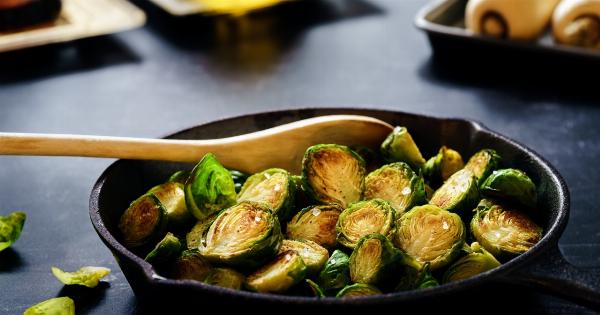Cast iron cookware is a popular choice for many home cooks and professional chefs due to its durability and ability to retain heat. However, there are certain foods that should not be cooked in cast iron due to the reaction they have with the material.
In this article, we will discuss some of the foods that should not be cooked in cast iron and why.
Acidic Foods
Acidic foods such as tomato sauce, lemon juice, and vinegar should not be cooked in cast iron cookware. The acid in these foods reacts with the iron, causing it to leach into the food and giving it a metallic taste.
It can also damage the seasoning of the pan, which is the layer of oil that has been heated to create a non-stick surface. The seasoning helps to protect the pan from rust and corrosion, so it is important to avoid cooking acidic foods in cast iron.
Eggs
Eggs are another food that should not be cooked in cast iron cookware, especially if the pan is not properly seasoned. Eggs have a tendency to stick to the pan, and if you try to scrape them off, you could damage the seasoning.
This can result in food sticking to the pan in the future, making it difficult to clean and cook on.
Dairy Products
Dairy products such as cheese and milk should not be cooked in cast iron cookware. The high calcium content in these foods reacts with the iron, causing it to discolor and affecting the taste of the food.
It can also damage the seasoning of the pan and make it more prone to rust and corrosion.
Foods with High Sugar Content
Foods with high sugar content such as caramel and syrups should not be cooked in cast iron cookware. The sugar can react with the iron, causing it to stick to the pan and burn.
This can also damage the seasoning of the pan and make it more difficult to clean.
Seafood
Seafood such as fish and shellfish should not be cooked in cast iron cookware unless the pan is well seasoned. Like eggs, seafood has a tendency to stick to the pan, and if you try to scrape it off, you could damage the seasoning.
This can make it more difficult to cook on and affect the taste of future dishes.
Spices
Spices such as turmeric and paprika should be used in moderation when cooking in cast iron cookware. The heat of the pan can cause the spices to burn and stick to the pan, affecting the taste of future dishes.
It is recommended to add spices towards the end of cooking or to cook with a non-reactive pan such as stainless steel or ceramic.
Citrus Fruits
Citrus fruits such as oranges and lemons should not be cooked in cast iron cookware. The acid in these fruits can react with the iron and cause it to leach into the food, affecting the taste.
It can also damage the seasoning of the pan and make it more prone to rust and corrosion.
Alkaline Foods
Alkaline foods such as beans and lentils should be cooked in non-reactive pans such as stainless steel or ceramic instead of cast iron.
The alkaline content in these foods can react with the iron, causing it to leach into the food and altering the taste. It can also damage the seasoning of the pan and make it more prone to rust and corrosion.
Cleaning and Maintenance
It is important to properly clean and maintain cast iron cookware to ensure its longevity. After cooking, let the pan cool completely before cleaning it. Use hot water and a stiff brush to clean the pan. Do not use soap as it can remove the seasoning.
Instead, use a small amount of vegetable oil to clean off any stuck-on food. Rinse the pan thoroughly and dry it completely with a towel or on the stove over low heat.
Conclusion
Cast iron cookware is a versatile and durable choice for many cooking needs. However, it is important to be aware of the foods that do not mix well with cast iron.
Acidic foods, dairy products, high-sugar content foods, seafood, spices, citrus fruits, and alkaline foods should all be avoided when cooking with cast iron. Proper cleaning and maintenance of the pan is also important to ensure its longevity and to prevent damage to the pan.































